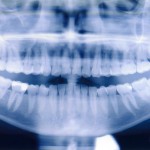
One of the complications of the removal of lower third molars ( wisdom teeth) is inferior alveolar nerve injury (IANI) . This has resulted in the use of a new extraction procedure coronectomy (partial odontectomy or root retention) a technique whereby the crown of a tooth is removed but parts of the roots are untouched. The aim of this review was to compare the technique of coronectomy of lower third molars with conventional total removal for reducing complications.
What did they do
The PubMed, Embase, Web of Science, Cochrane Central Register of Controlled Trials (CENTRAL), and the grey literature database SIGLE were searched. Study selection and data abstraction was conducted independently by two authors with disputes being resolved by discussion. Randomized (RCTs) and non-randomized controlled trials (CCTs) that compared coronectomy with totalremoval for third molar extractions were included were considered.
What did they find
Fours studies ( 2 RCTs and 2 CCTs) were included, involving 699 participants and 940 lower third molars in total. The longest period of follow up was 25 months.
The pooled risk ratio (coronectomy vs. total removal) was
- 0.11(95% CI = 0.03-0.36), for inferior alveolar nerve injury
- 1.03 (95% CI = 0.54-1.98), for postoperative infection,
- 0.55 (95% CI = 0.28-1.05), for dry socket,
- 1.14 (95% CI =0.57-2.30), for pain at 1 wk after surgery.
Across the 4 included studies
- Failed coronectomy rates,where the procedure was changed to total removal during surgery due to root loosening or mobilization. ranged from 38.3% to 2.3%
- Reoperation to remove roots remaining after surgery in the coronectomy group due to persistent pain, root exposure,or persistent apical infections ranged from 0% to 4.9%
- Root migration was only reported in 3 studies and ranged from 13.2% to 85.9%
They concluded
Coronectomy appears superior to total removal for reducing inferior alveolar nerve damage and could be used in clinical practice for third molar extractions with high risk of nerve injury.
Long H, Zhou Y, Liao L, Pyakurel U, Wang Y, Lai W. Coronectomy vs. Total Removal for Third Molar Extraction: A Systematic Review. J Dent Res. 2012 May 23. [Epub ahead of print] PubMed PMID: 22622663
Comment
The reviewers did not present a formal risk of bias assessment of the included studies although they did highlight the lack of high quality studies as one of the limitations of their review. In addition they note that only a small number of studies were available and that the follow up periods were relatively short.

[…] Coronectomy-or-total-removal-of-third-molars-which-approach-give-better-outcomes/ […]